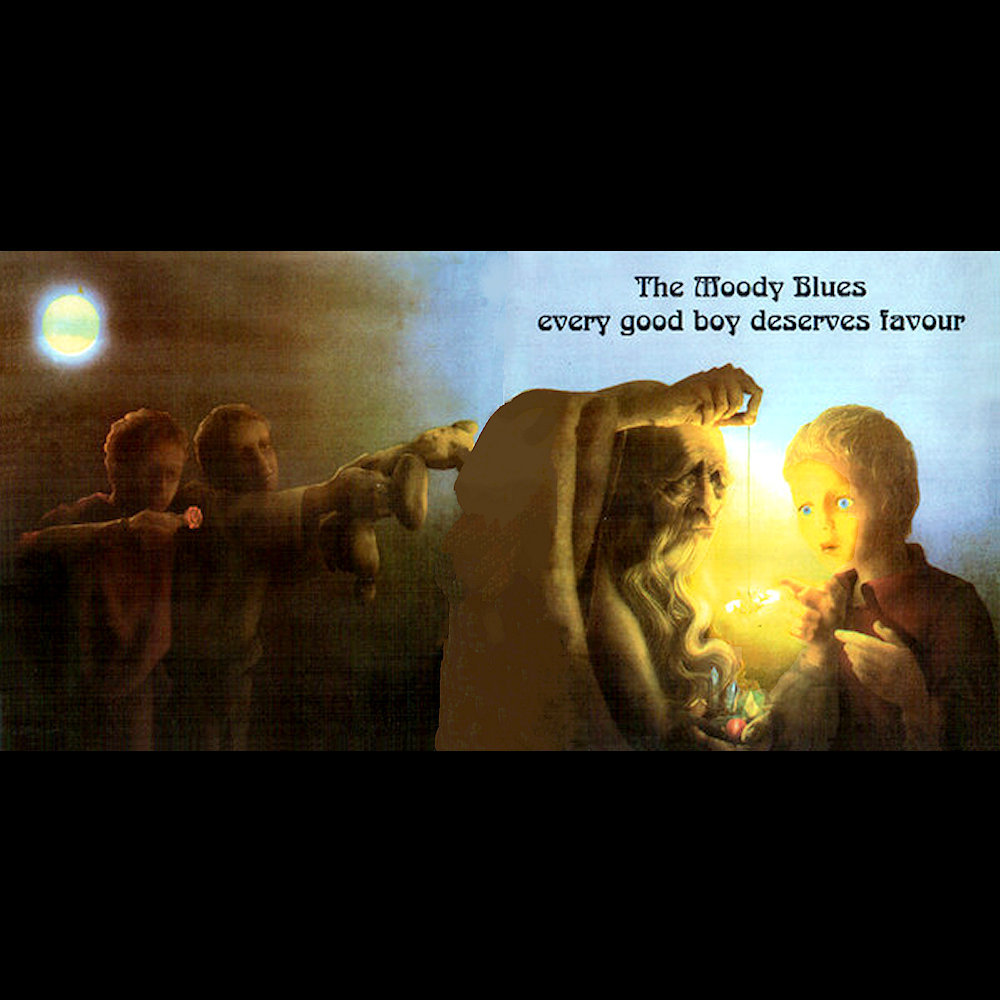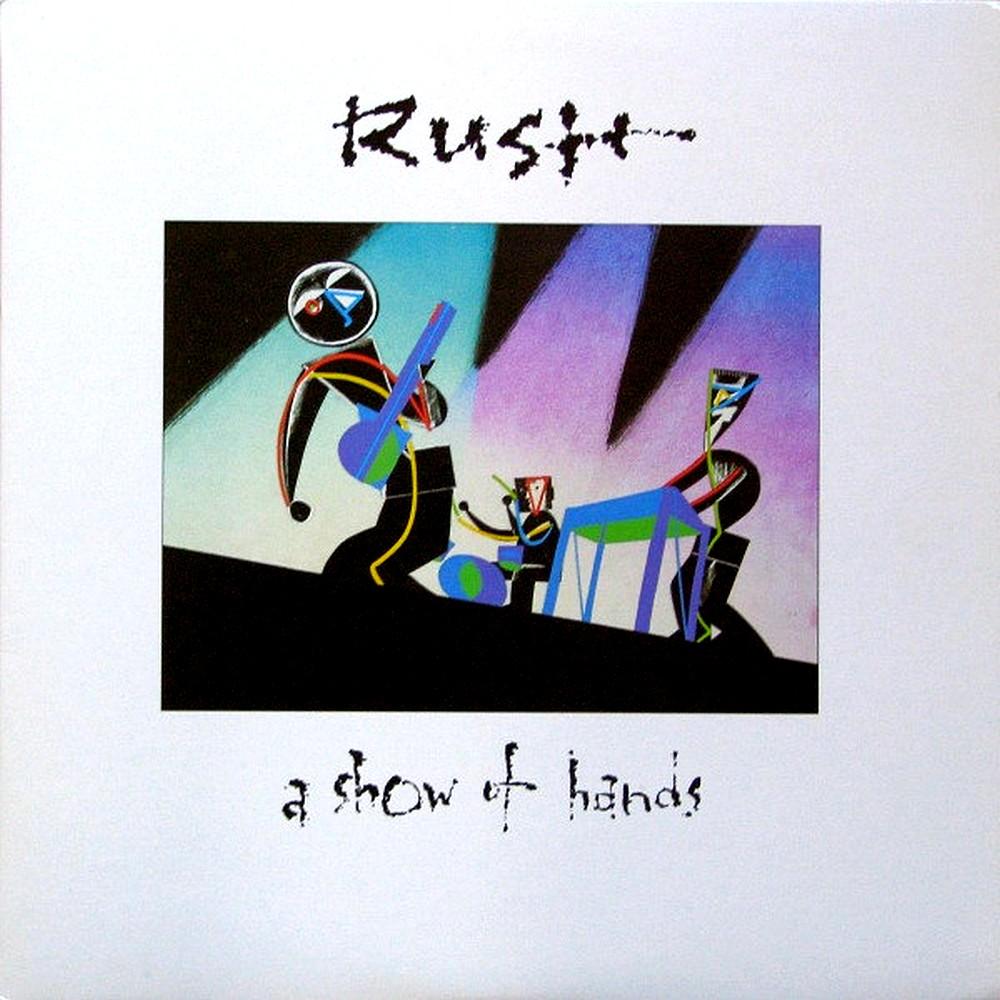
Album Information:
Album ID: 10183
About The Moody Blues:
The Moody Blues is a British rock band that was formed in Birmingham in 1964. The original members of the band were Ray Thomas, Mike Pinder, Denny Laine, Graeme Edge, and Clint Warwick. They initially played R&B music but soon shifted to psychedelic rock with their album 'Days of Future Passed' in 1967.
The Moody Blues gained popularity in the late 1960s and early 1970s with hits such as 'Nights in White Satin,' 'Tuesday Afternoon,' and 'Question.' Their unique sound was characterized by the use of a Mellotron, a keyboard instrument that used pre-recorded sounds.
In the 1970s, the Moody Blues continued to produce successful albums such as 'Every Good Boy Deserves Favour' and 'Seventh Sojourn.' However, they faced some internal conflicts and lineup changes over the years. In 1978, Mike Pinder left the band and was replaced by Patrick Moraz.
The Moody Blues continued to tour and produce new music in the 1980s and 1990s, releasing albums such as 'The Other Side of Life,' 'Sur la Mer,' and 'Keys of the Kingdom.' They also collaborated with orchestras and choirs for a number of their projects.
In 2018, the Moody Blues were inducted into the Rock and Roll Hall of Fame, recognizing their significant contributions to rock music over the past five decades. Despite the passing of some of their original members, the band continues to tour, bringing their unique and influential sound to audiences around the world.
About the album Every Good Boy Deserves Favour:
Every Good Boy Deserves Favour is the seventh studio album by English rock band The Moody Blues, released in 1971. The album achieved commercial success, reaching number 2 on the UK Albums Chart and number 5 on the US Billboard 200, and is widely regarded as one of the band's finest works.
The album's opening track, 'Procession', is a short instrumental piece that leads into 'The Story in Your Eyes'. This uptempo rock song features John Lodge on lead vocals and is driven by a catchy guitar riff. 'Our Guessing Game' follows, a slower-paced ballad with lush orchestration and a haunting melody.
The album's centerpiece is the epic 'Emily's Song'. Clocking in at over six and a half minutes, this hauntingly beautiful track showcases Justin Hayward's exquisite guitar playing and soaring vocals. The song features a complex arrangement that builds to a stunning climax.
The album's second side kicks off with 'After You Came', a funky rock number that features Ray Thomas on lead vocals. This is followed by 'One More Time to Live', a majestic ballad that features Mike Pinder's Mellotron and an orchestral arrangement.
The album's closing track is 'The Story in Your Eyes (Alternate Mix)'. This version features a different mix and includes an extended guitar solo. The song serves as a reprise of the album's opening track and brings the album full circle.
Overall, Every Good Boy Deserves Favour is a masterful album that showcases The Moody Blues' exceptional musicianship, intricate arrangements, and unique sound. It remains a timeless classic that has stood the test of time and continues to inspire and influence generations of music lovers.
Members:
The Moody Blues is a British rock band formed in Birmingham, England, in 1964. Its members have changed over the years, but the most significant and influential members are:
1. Justin Hayward - Justin Hayward is the lead vocalist, lead guitarist, and principal songwriter of The Moody Blues. Born in 1946 in Swindon, England, he began playing guitar at a young age and joined the band in 1966. He has been a driving force behind the band's most successful albums, including 'Days of Future Passed,' 'In Search of the Lost Chord,' and 'Seventh Sojourn.' Hayward's solo career has also been successful, with multiple albums and hit singles to his name.
2. John Lodge - John Lodge is the bassist and vocalist for The Moody Blues. Born in 1945 in Birmingham, England, he joined the band in 1966. Along with Hayward and drummer Graeme Edge, Lodge is one of the band's core songwriters. He has also released several solo albums, including 'Natural Avenue' and '10,000 Light Years Ago.'
3. Graeme Edge - Graeme Edge is the drummer and percussionist for The Moody Blues. Born in 1941 in Staffordshire, England, he is the only original member who has remained with the band throughout its entire history. Edge is also a poet, and his spoken-word performances have been featured on several of the band's albums.
4. Ray Thomas - Ray Thomas was the flautist and vocalist for The Moody Blues. Born in 1941 in Stourport-on-Severn, England, he joined the band in 1964 and played on most of their early albums. Thomas was known for his distinctive flute playing and his contributions to the band's vocal harmonies. He passed away in 2018.
5. Mike Pinder - Mike Pinder was the keyboardist and vocalist for The Moody Blues. Born in 1941 in Erdington, England, he joined the band in 1964 and played a key role in their early success. Pinder's use of the Mellotron, a keyboard instrument that emulated orchestral sounds, was a key component of the band's signature sound. He left the group in 1978 to pursue a solo career.
These are the five key members of The Moody Blues who have made the greatest impact on the band's legacy. Though the group has had other members over the years, including several guitarists and additional keyboardists, it is these five who are most closely associated with the group's most significant and influential work.
Track List for Every Good Boy Deserves Favour:
Track 1: 'Procession' - 4:41
The opening track is an instrumental piece with a marching beat and grand orchestration. It sets the stage for the album's concept of exploring the stages of a person's life.
Track 2: 'The Story in Your Eyes' - 2:56
This upbeat track features a catchy guitar riff and lyrics about the confusion and uncertainty that often comes with life's changes. It was also released as a single.
Track 3: 'Our Guessing Game' - 3:34
A slower tempo ballad that explores the complexity of relationships and the uncertainty of the future.
Track 4: 'Emily's Song' - 3:40
This delicate and acoustic track features a gentle melody and lyrics about a lost love. It is one of The Moody Blues' most introspective songs.
Track 5: 'After You Came' - 4:39
Featuring a driving beat and soaring vocals, this track is a celebration of finding new love and moving on from past hurts.
Track 6: 'One More Time to Live' - 5:41
A poignant ballad that is a reflection on the brevity of life and the importance of making every moment count.
Track 7: 'Nice to Be Here' - 4:23
A jazzy and upbeat track about appreciating the present moment and living in the now.
Track 8: 'You Can Never Go Home' - 4:14
A haunting ballad about the yearning for home and the bittersweet realization that the past cannot be recreated.
Track 9: 'My Song' - 6:12
The final and longest track on the album, 'My Song' is a reflective and introspective piece about finding meaning in life and the power of music to touch the soul.
Discography for The Moody Blues:
Here is The Moody Blues' discography in chronological order, including their albums, singles, and other releases:
Albums:
1. The Magnificent Moodies (1965)
2. Days of Future Passed (1967)
3. In Search of the Lost Chord (1968)
4. On the Threshold of a Dream (1969)
5. To Our Children's Children's Children (1969)
6. A Question of Balance (1970)
7. Every Good Boy Deserves Favour (1971)
8. Seventh Sojourn (1972)
9. Octave (1978)
10. Long Distance Voyager (1981)
11. The Present (1983)
12. The Other Side of Life (1986)
13. Sur la Mer (1988)
14. Keys of the Kingdom (1991)
15. Strange Times (1999)
16. December (2003)
17. The Polydor Years: 1986–1992 (2010)
Singles:
1. 'Lose Your Money (But Don't Lose Your Mind)' (1964)
2. 'Go Now' (1964)
3. 'From the Bottom of My Heart (I Love You)' (1965)
4. 'Everyday' (1965)
5. 'Boulevard de la Madeleine' (1967)
6. 'Fly Me High' (1967)
7. 'Love and Beauty' (1968)
8. 'Tuesday Afternoon' (1968)
9. 'Nights in White Satin' (1967, reissued in 1972 and 1979)
10. 'Ride My See-Saw' (1968)
11. 'Voices in the Sky' (1968)
12. 'Never Comes the Day' (1969)
13. 'Watching and Waiting' (1969)
14. 'Question' (1970)
15. 'The Story in Your Eyes' (1971)
16. 'Isn't Life Strange' (1972)
17. 'I'm Just a Singer (In a Rock and Roll Band)' (1972)
18. 'Blue World' (1983)
19. 'Sitting at the Wheel' (1984)
20. 'Your Wildest Dreams' (1986)
21. 'The Voice' (1987)
22. 'I Know You're Out There Somewhere' (1988)
Other releases:
1. Caught Live + 5 (1977)
2. Prelude (1987)
3. The Singles+ (1995)
4. Anthology (1998)
5. Time Traveller (1998)
6. The Essential Moody Blues (1999)
7. Hall of Fame (2000)
8. Gold (2005)
9. Collected (2017)


 Last Played: 11/01/24 04:34 AM
Last Played: 11/01/24 04:34 AM Last Played: 11/01/24 04:28 AM
Last Played: 11/01/24 04:28 AM